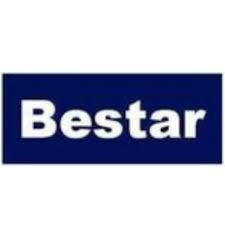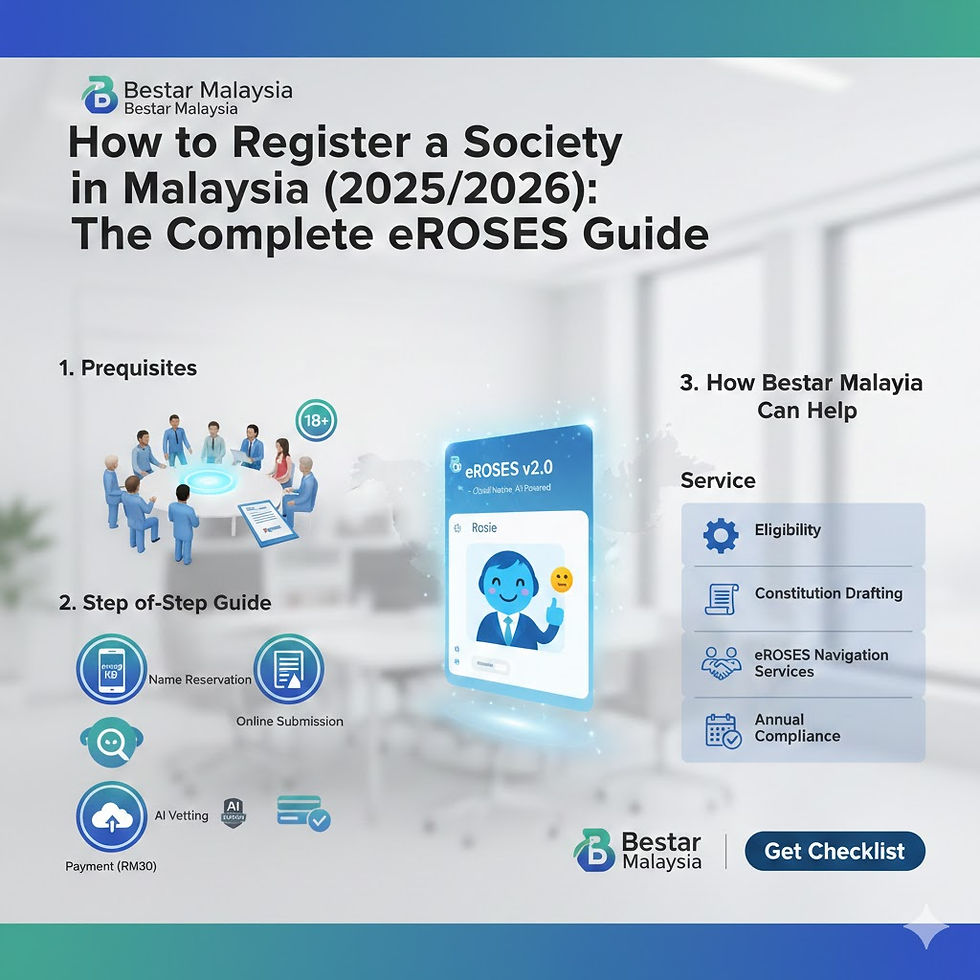Employer of Record in Malaysia
- Roger Pay
- May 4, 2025
- 6 min read
An Employer of Record (EOR) in Malaysia is a third-party service provider that acts as the legal employer for workers you want to hire in Malaysia. This allows your company to employ individuals in Malaysia without needing to establish a legal entity there. The EOR handles all the legal and administrative responsibilities related to employment, such as:
Payroll processing: Ensuring employees are paid accurately and on time, including managing deductions and statutory contributions.
Tax compliance: Handling income tax withholding and other employment-related taxes according to Malaysian regulations.
Benefits administration: Managing employee benefits packages, which may include mandatory benefits like the Employees Provident Fund (EPF) and the Social Security Organization (SOCSO), as well as optional benefits.
Employment contracts: Drafting employment contracts that comply with Malaysian labor laws.
Onboarding and offboarding: Managing the processes of hiring new employees and handling the termination of employment, including work permit cancellations if needed.
Compliance with local labor laws: Ensuring adherence to the Employment Act 1955 and other relevant legislation regarding working hours, leave entitlements, and termination procedures.
Work permits and visas: For foreign employees, the EOR can often assist with the application and renewal processes.
Benefits of Using an Employer of Record in Malaysia:
Faster Market Entry: You can begin hiring and operating in Malaysia quickly without the lengthy process of setting up a local entity.
Cost Efficiency: Avoid the significant costs associated with establishing a legal entity, such as registration fees, legal expenses, and office space.
Compliance Assurance: EORs have expertise in Malaysian labor laws and ensure your employment practices are fully compliant, reducing the risk of legal issues.
Administrative Relief: Outsourcing HR tasks to an EOR frees up your internal team to focus on core business activities.
Access to Local Expertise: EORs understand the local talent market, compensation norms, and cultural nuances.
Flexibility in Hiring: You can easily scale your workforce up or down as needed without the long-term commitments of a local entity.
Sample Employment of Record Arrangement:
In an EOR arrangement, the worker has a direct working relationship with your company, meaning you direct their daily tasks and responsibilities. However, the employment contract is between the employee and the EOR.
Key aspects typically covered in the agreement between your company and the EOR include:
Services provided by the EOR: Clearly outlining the responsibilities the EOR will handle (payroll, benefits, compliance, etc.).
Responsibilities of your company: Detailing your obligations, such as managing the employee's work, providing necessary information, and payment to the EOR.
Fees and payment terms: Specifying the costs of the EOR services and the payment schedule.
Term and termination: Defining the duration of the agreement and the conditions under which it can be terminated by either party.
Compliance and legal obligations: Affirming that the EOR will comply with all relevant Malaysian employment laws.
Confidentiality and data protection: Ensuring the security and privacy of employee and company data.
Indemnification and liability: Outlining the responsibilities of each party for any legal or financial liabilities.
Regarding an employment contract between the EOR and the employee:
Key elements that would typically be included in an employment contract in Malaysia (whether directly with a company or via an EOR) are:
Identification of parties: Clearly stating the details of the EOR (as the employer) and the employee.
Job title and description: Defining the employee's role and responsibilities.
Commencement date and duration: Specifying when the employment begins and, if it's a fixed-term contract, the end date.
Working hours: Outlining the standard working hours and any provisions for overtime. The typical workday is 8 hours, with a weekly limit of 45 hours, although a 40-hour week is common. Overtime work should be compensated at a rate of at least 1.5 times the hourly rate. The maximum overtime an employee can be required to work is 104 hours per month.
Salary and payment terms: Stating the basic wage, allowances, and the frequency of payment (usually monthly, no later than the 7th day of the following month, typically via bank transfer). The contract must comply with the national minimum wage, which is currently MYR 1,700 per month (as of May 2025, this applies to private sector employers with five or more employees).
Benefits: Detailing mandatory benefits like EPF (employee contribution is typically 9-11%, employer 12-13% for those under 60) and SOCSO (employer contribution is around 1.75%), as well as any additional benefits like health insurance or leave.
Leave entitlements: Specifying the amount of annual leave (minimum 8 days for the first 2 years of service, increasing to 12 days for 2-5 years and 16 days for over 5 years), sick leave (14 days for <2 years, 18 days for 2-5 years, 22 days for >5 years, with up to 60 days for hospitalization), and public holidays (typically 11 gazetted public holidays). Maternity leave in the private sector is 98 consecutive days.
Rest day: Employees are entitled to one rest day per week for every six days of work.
Termination of employment: Outlining the notice periods required for termination by either party (ranging from 4 weeks for less than 2 years of service to 8 weeks for more than 5 years). Severance pay is also mandated under certain conditions based on the duration of service.
Probation period: If applicable, specifying the length of the probationary period (commonly 1-3 months).
Confidentiality clauses: Protecting the company's proprietary information.
Applicable law: Stating that the contract is governed by the laws of Malaysia.
It is crucial to ensure that any employment contract in Malaysia complies with the Employment Act 1955 and other relevant labor legislation. Consulting with professionals in Malaysia is highly recommended when drafting employment contracts to ensure full compliance.
How Bestar can Help
Bestar can significantly help businesses looking to hire and manage employees in Malaysia (and other countries) without establishing a local legal entity. Here's a breakdown of how an Bestar can assist:
1. Simplified International Hiring and Expansion:
Faster Market Entry: Bestar allows you to quickly hire employees in Malaysia without the lengthy and complex process of setting up a local branch or subsidiary. This enables you to capitalize on market opportunities faster.
Access to Global Talent: You can hire the best talent in Malaysia, regardless of your company's physical presence there.
Reduced Administrative Burden: Bestar handles all the legal and administrative tasks associated with employment, freeing up your internal HR team to focus on core business activities.
2. Ensuring Legal and HR Compliance:
Expertise in Local Labor Laws: Bestar has in-depth knowledge of Malaysian employment laws, including the Employment Act 1955, minimum wage regulations, working hour limitations, leave entitlements, and termination procedures. This ensures compliance and reduces the risk of legal issues.
Accurate Payroll and Tax Management: Wey manage payroll processing, ensuring accurate salary disbursement, tax deductions (including income tax, EPF, and SOCSO contributions), and compliance with local tax regulations.
Proper Employment Contracts: Bestar drafts employment contracts that comply with Malaysian labor laws, protecting both the employer and the employee.
Benefits Administration: We handle the administration of statutory benefits like EPF and SOCSO, and can also manage additional benefits packages if required.
Work Permit and Visa Assistance: For foreign employees, Bestar can often assist with the application and renewal processes for work permits and visas, ensuring compliance with immigration laws.
Onboarding and Offboarding: We manage the entire employee lifecycle, from compliant onboarding processes to legally sound offboarding, including work permit cancellations for foreign employees.
3. Cost and Time Efficiency:
Reduced Setup Costs: Avoid the significant expenses associated with establishing a legal entity in Malaysia, such as registration fees, legal costs, and office space.
Streamlined HR Processes: Outsourcing HR functions to Bestar saves time and resources that would otherwise be spent on complex administrative tasks.
Scalability and Flexibility: Easily scale your workforce up or down as needed without the long-term commitments of a local entity. This is particularly beneficial for companies testing the market or with project-based needs.
4. Risk Mitigation:
Reduced Legal Risks: By ensuring compliance with all local employment laws, Bestar minimizes the risk of fines, penalties, and legal disputes.
Clear Employer Responsibilities: Bestar assumes the legal responsibilities of the employer, providing a clear framework and reducing liability for your company.
5. Local Expertise and Support:
Understanding of Local Market Practices: Bestar has insights into local compensation norms, benefits expectations, and cultural nuances, helping you attract and retain talent.
Dedicated Support: You typically have a local point of contact to address any HR-related issues and ensure smooth operations.
In essence, Bestar acts as your trusted partner for employing individuals in Malaysia, allowing you to focus on your core business objectives while ensuring a compliant, efficient, and hassle-free expansion into the Malaysian market.




Comments